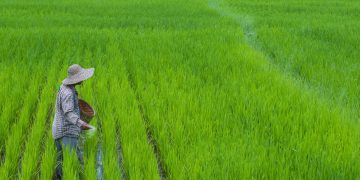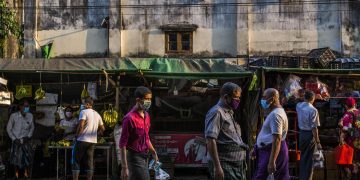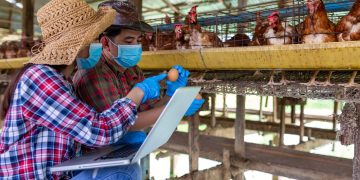Crop traders link farms with food processors and exporters. However, the pandemic has disrupted their normal operations. What policies can improve business conditions for traders and mitigate COVID-19 effects for farmers and consumers?
New evidence on the economic impacts of COVID-19 in Myanmar
A severe second wave of COVID-19 infections has led to lockdowns since mid-September—the second set of strict controls imposed after the initial outbreak in the spring. Derek Headey and colleagues have monitored monthly trends in poverty and food insecurity, and found the lockdowns have dramatic impacts.
COVID-19 and business responses: How are Yangon’s poultry farmers adapting to the pandemic? (August)
Though the poultry sector stabilized recently, COVID-19 has had a lasting impact of continuing mismatches in supply and demand. Learn more about our recommendations to help Myanmar poultry farmers adapt to COVID-19.
Poverty and food insecurity during COVID-19 (June and July)
The pandemic creates not only a serious and sustained threat to the health of the Myanmar population but also economic disruptions and challenges for efforts to avert poverty, food insecurity, and malnutrition. Researchers utilize recent findings to assess the pandemic's impact on food security and welfare.
COVID-19 and last mile delivery: Challenges for retail shops (late July)
COVID-19 may have significant impacts on traditional food retail shops, which affects the availability and affordability of food for consumers. In this blog post, IFPRI researchers assess how the pandemic is affecting retailers in urban areas.
- « Previous Page
- 1
- …
- 24
- 25
- 26
- 27
- 28
- …
- 34
- Next Page »




